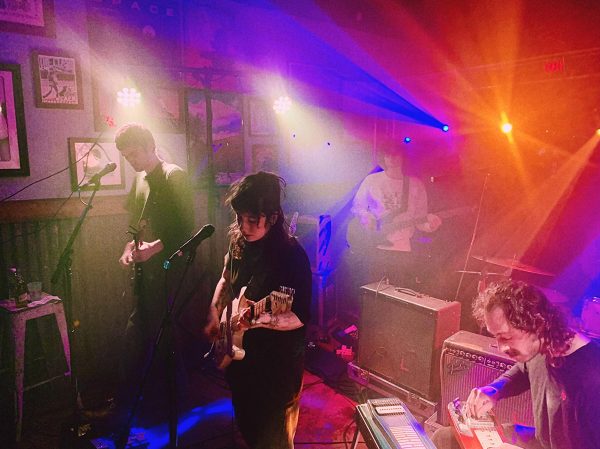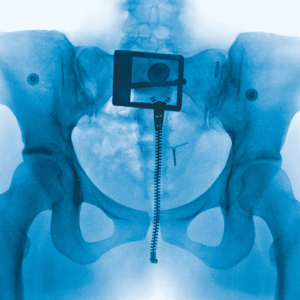REVIEW: Florence Pugh can’t save ‘Don’t Worry Darling’ from its own script
Despite the recent drama stirred among the cast of “Don’t Worry Darling”, Olivia Wilde’s newest feature remained an anticipated release. With the director of “Booksmart” and a star-studded cast behind it, it seemed to guarantee excellence. However, the final product is not quite the powerhouse thriller that moviegoers anticipated. The film’s disjointed writing falls apart by the conclusion, failing to capitalize on its own potential.
The film follows married couple Jack (Harry Styles) and Alice Chambers (Florence Pugh) living out a picturesque 1950s life as a part of the mysterious Victory Project. While the men spend their day working at Victory’s facility, the women happily play homemakers for their husbands. However, when one of the women in town, Margaret (KiKi Layne), disappears after a psychotic break, Alice begins to question the integrity of Victory’s too-perfect reality.
“Don’t Worry Darling” takes no time signaling trouble in paradise. Wilde makes deliberate artistic choices that continually maintain unsettling tone. Throughout the film, small, eerie moments—such as Alice breaking eggs to discover no yolk in any of them—and a matching score keep viewers on edge. These scenes are then followed by hard cuts to a loud, social setting, giving a discontinuity to the film’s events. Wilde’s choices may seem random at first, but as the film goes on, viewers are able to connect the importance of Alice’s waking and sleeping visions. Stylistically, this film starts off on the right foot.
What makes these choices so successful is in strong part due to Florence Pugh’s performance as Alice. She effectively makes the audience sympathize with the housewife in her desperate quest for truth. Reminiscent of her role in “Midsommar,” Pugh brings visceral emotion and terror to both her realistic and abstract scenes. She is not just a damsel in distress, though—Pugh manages to make Alice strong despite the strangeness around her. Wilde’s feminist intentions for the character come across as nuanced and three-dimensional in Pugh’s hands.
She also plays well off the rest of the cast. Alice’s confrontation with Frank (Chris Pine) is one of the tensest moments in the film, as both stars bring their all. Pugh’s scenes with best friend Bunny, played by Wilde herself, also provide key moments of tension. Finally, in her scenes with Styles, Pugh plays the loving wife perfectly, her established presence often dominating their moments together.
However, this imbalance in presence does not bode well for Styles. While it is expected that he would be the weaker actor between the two leads, his character becomes far more important than expected at the film’s onset. The climactic reveal around Victory is made less impactful than it could be when Jack seems so secondary to Alice. For the first three-fourths of the film, he comes across as the one-note, concerned-for-his-safety husband that we have seen many times onscreen before. For the last fourth, he is suddenly inconceivably evil.
The problem with Jack is not solely due to Styles’ acting. There are moments—such as the scene where he turns Alice over to security—where he delivers a scary intensity. Much of his character issue lies in the script. The moments he does have on screen are relatively similar and reactive, due to Alice’s status as the main character between the two. Then, with the reveal, there is so little time given to develop him in this new light.
The reveal itself also recontextualizes all the surreal elements that came before. The plane crash that leads Alice to disobey the one rule women must follow in Victory—to not visit the headquarters—is bizarre, even purposeless, when revisited. Why a plane? Was it a hallucination or a glitch? Similarly, all of Alice’s frightening actions, such as her unconsciously banging her head against a window, do not make much sense either. Were they simply symptoms of her increasing paranoia? It is not so much that all questions need an answer, but such fundamental ones shouldn’t exist if deeper thought went into Victory’s worldbuilding.
It is not that the reveal is objectively bad, but that it lacks the proper setup. The leader of the Victory Project, Frank, provides an adequate, if cliché, red herring. Pine pulls off the character with his balance of detachment and implied danger. However, the script doesn’t do him any favors. Most of his larger moments are cliché cult leader monologues, with few real hints relevant to the mystery until his and Alice’s confrontation. Other characters also reveal little, including Margaret herself, thus making the climax a whiplash moment rather than a “wow.”
Because “Don’t Worry Darling” spent so much time building a suspenseful feeling up to the reveal, the ending suffers. Pugh successfully immerses the audience in the last moments of tension, perfectly capturing Alice’s desperation to escape. When the adrenaline dies down, though, the final moments do not reach their potential after such a heartbreaking reveal. While things wrap up almost immediately for Alice, questions around everyone else’s fate persist. What happens with Frank? What about the other women? Why are they questioning and realizing things now when they had previously disregarded Alice’s warning?
If more time had been dedicated to the ending and less to the mood, “Don’t Worry Darling” might have gotten the ending it deserved. Both Pugh and Styles would have had a chance to flesh out their characters’ dynamic in light of the new information shed on their relationship.
The actual message of “Don’t Worry Darling” is not to be discredited. The concept itself is deeply disturbing, a perfect footing for a feminist thriller. However, too many strange questions remain to make this the event-of-the-year feature many were expecting from Wilde. It is not bad by any means—Pugh’s performance is worth the watch on its own—but not great, either, as viewers leave the film with a sense of irresolution.











